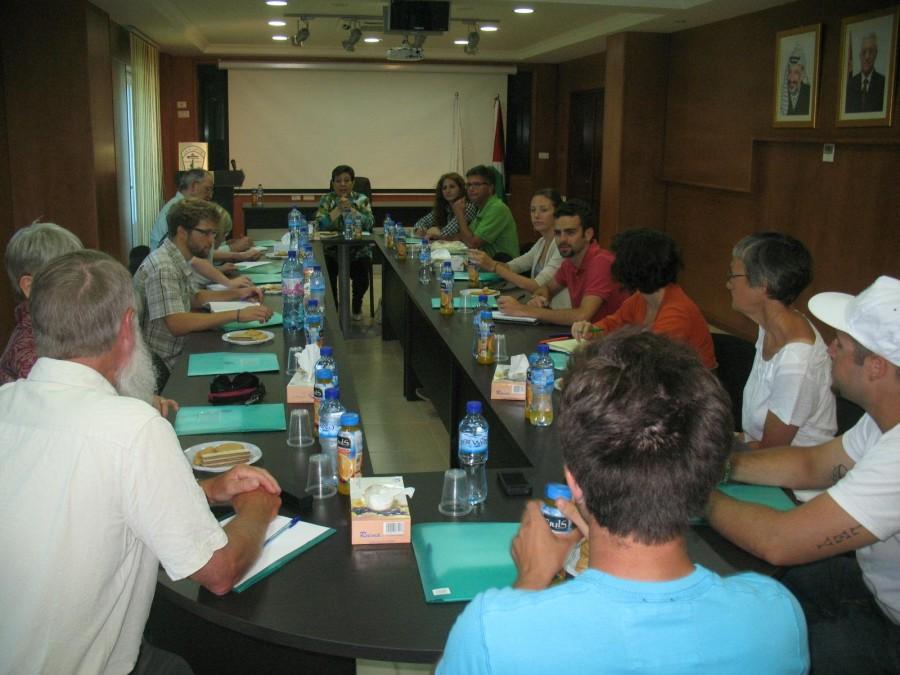Director of the Friends Center and Campus Ministry Coordinator Max Carter was a conscientious objector to the Vietnam War because of his Quaker faith. As his alternative service to military duty, he taught in Ramallah, Palestine. In 1997, Carter escorted the first Guilford College work group to Palestine.
In summer 2010, a group travelled with Carter to help at a school in Ramallah where he taught math in the early 1970s. Since the school had been long established, the group met prominent political figures who were associated with the school. In exchange, they did volunteer work like painting playground equipment and landscaping.
Four members of the group spoke at a reflections panel on Sept. 7: sophomores Kelsey Worthy and Stephanie Seligman, graduate A.J. Willey ‘11, and community member Zane Kuseybi. Each reflected on the immense misunderstandings they brought to the trip.
“I was reluctant to visit at first because, as a Syrian family, we are prohibited to go into what we consider ‘occupied territory,'” said Kuseybi. “The more I thought about it, the more I realized I needed to go there in order to understand the situation.”
Each of the travelers had their own reasons for travelling to Palestine, not necessarily religious.
“I am not religious, so I travelled to see where all the Western religions began,” said Seligman. “I wouldn’t say I found it, but I learned a lot.”
As a whole, the group agreed that the American people do not get a sense of the culture in the West Bank region. To illustrate this point, Willey asked the audience, “What do you all know about what is going on over there (in Palestine)?” One member in the audience hesitated and said, “A little bit.”
The trip began with early experiences of passing through security and border crossing in Israel.
“As soon as we said we were going to Ramallah, I noticed a difference in the security guard’s attitude,” said Worthy. “They kept asking, ‘Where are you going?’ and when we said Ramallah, they kept asking, ‘Why?'”
Not all Israelis that the group came in contact with were opposed to peaceful coexistence with the Palestinians. The group recounts going into a checkpoint where 18-to-21-year-old Israelis serve three years of their lives securing the border.
“It is kind of sad, because we actually spoke with some of the soldiers, and most of them told us stories about how terrible it is,” said Willey. “In fact, they gave us a book filled with stories written by soldiers, called ‘Breaking the Silence.'”
“We all went over there with an image of Palestinian women and men,” said Worthy. “A stereotypical image of women with their heads covered up and men being very different from American men.”
They came back with a totally different perspective. Contrary to previous beliefs, the Palestinian people were some of the nicest individuals they had ever met.
“I had a perception of what Islamic extremists might be, but I knew that those people were not all the same as the Palestinian population,” said Worthy. “The Palestinians we met were very gracious and well-mannered.”
Carter said he always notices a difference in the group after they return.
“They come back with a deep appreciation for the humanity on both sides,” Carter explained. “These aren’t just numbers and statistics; they are real people, and the students start to fall in love with them.”

